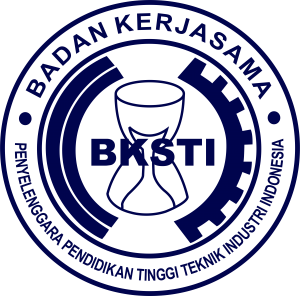Implementation of lean thinking through A3 report in plastic injection company
DOI:
https://doi.org/10.12928/ijio.v2i1.3055Keywords:
Lean thinking, A3 report, Manufacturing industry.Abstract
Lean thinking, or lean production, which has long been introduced by Toyota, is a process improvement concept that is carried out by eliminating waste and focusing more on things that create values. Its emergence was inspired by the fact on the production floor, where only a small fraction of the total times and efforts contributed to creating added value to customers’ final product. Lots of prior studies have shown various benefits of implementing lean production, especially in manufacturing industries. However, many companies still find difficulties trying to implement a lean approach for the first time. Furthermore, they do not have a clear and concise picture of each component of the lean approach they want to apply. This company is based on case study which has many rejected products so that it makes higher production cost. Therefore, this study proposed an implementation of lean thinking to reduce the number of rejected products through A3 report. This result show the defects can be reduced and the standard operational procedure has been developed.Â
References
Flinchbaugh, J. (2012). A3 problem solving: Applying lean thinking. Lean Learning Center.
Herzog, N. V., & Tonchia, S. (2014). An instrument for measuring the degree of lean implementation in manufacturing. Strojniški vestnik-Journal of Mechanical Engineering, 60(12), 797-803.
Howell, G. A. (1999). What is lean construction-1999. In Proceedings IGLC, 7, 1.
Holweg, M. (2007). The genealogy of lean production. Journal of operations management, 25(2), 420-437.
IW/MPI Census of Manufacturers (2007) Measuring continues improvement programs
Lila, B. (2012). A survey on implementation of the lean manufacturing in automotive manufacturers in the eastern region of Thailand. In Proceedings of the 2nd International Conference on Industrial Technology and Management (ICITM), 43-48.
Melton, T. (2005). The benefits of lean manufacturing: what lean thinking has to offer the process industries. Chemical engineering research and design, 83(6), 662-673.
NIST, 2003. Utah Manufacturing Extension Partnership, Manufacturing Extension Partnership, National Institute of Standards and Technology, Gaithersburg, MD.
Nordin, N., Deros, B. M., & Abd Wahab, D. (2010). A survey on lean manufacturing implementation in Malaysian automotive industry. International Journal of Innovation, Management and Technology, 1(4), 374.
Saad, N. M., Al-Ashaab, A., Shehab, E., & Maksimovic, M. (2013). A3 thinking approach to support problem solving in lean product and process development. In Concurrent Engineering Approaches for Sustainable Product Development in a Multi-Disciplinary Environment, 871-882. Springer, London.
Thangarajoo, Y., & Smith, A. (2015). Lean thinking: An overview. Industrial Engineering & Management,[e-journal], 4(2), 1000159.
Waurzyniak, P. (2003). Going lean at Baxter. Manufacturing Engineering, 130(5), 89-89.
Womack, J.P., & Jones, D.T. (1996). Lean Thinking: Banish Waste and Create Wealth in Your Corporation, Simon & Schuster, New York.
Downloads
Published
How to Cite
Issue
Section
License
License and Copyright Agreement
In submitting the manuscript to the journal, the authors certify that:
- They are authorized by their co-authors to enter into these arrangements.
- The work described has not been formally published before, except in the form of an abstract or as part of a published lecture, review, thesis, or overlay journal. Please also carefully read the International Journal of Industrial Optimization (IJIO) Author Guidelines at http://journal2.uad.ac.id/index.php/ijio/about/submissions#onlineSubmissions
- That it is not under consideration for publication elsewhere,
- That its publication has been approved by all the author(s) and by the responsible authorities tacitly or explicitly of the institutes where the work has been carried out.
- They secure the right to reproduce any material that has already been published or copyrighted elsewhere.
- They agree to the following license and copyright agreement.
Copyright
Authors who publish with the International Journal of Industrial Optimization (IJIO) agree to the following terms:
- Authors retain copyright and grant the journal right of first publication with the work simultaneously licensed under a Creative Commons Attribution License (CC BY-SA 4.0) that allows others to share the work with an acknowledgment of the work's authorship and initial publication in this journal.
- Authors are able to enter into separate, additional contractual arrangements for the non-exclusive distribution of the journal's published version of the work (e.g., post it to an institutional repository or publish it in a book), with an acknowledgment of its initial publication in this journal.
- Authors are permitted and encouraged to post their work online (e.g., in institutional repositories or on their website) prior to and during the submission process, as it can lead to productive exchanges, as well as earlier and greater citation of published work.

1.png)

